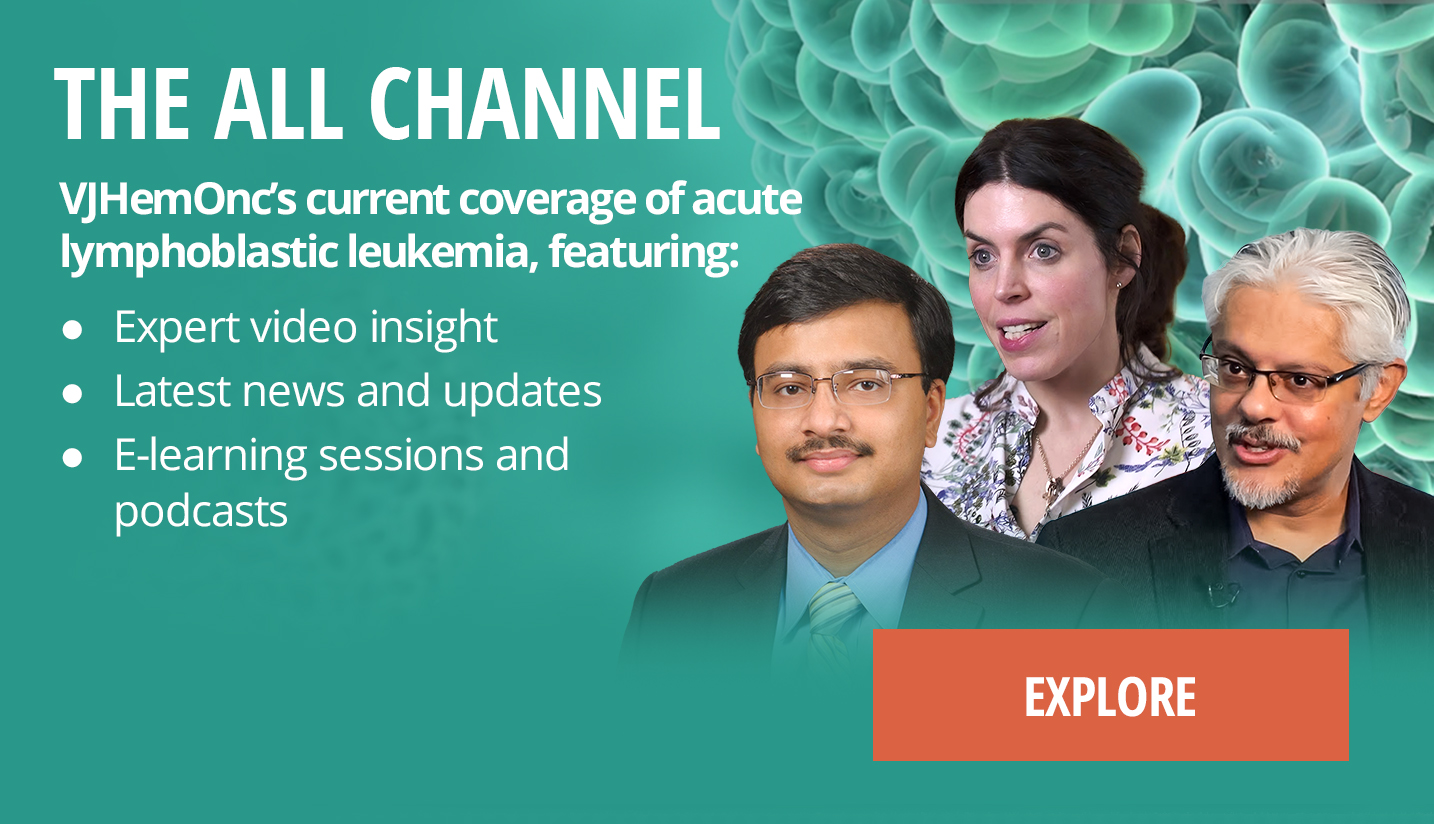Yeah, I think the key takeaway for community oncologists for ALL is really that advancements are coming fast and furious in this disease. Historically, ALL in adults has been very difficult to treat, highly treatment resistant, both Ph-positive and Ph-negative and adults haven’t tolerated conventional chemotherapy well. And now we’re making a lot of progress really across the board in Philadelphia chromosome-positive ALL as I sort of summarize updates in my education session, but also in Philadelphia chromosome-negative ALL where we’re learning how to integrate immunotherapy, inotuzumab, and blinatumomab into treatment regimens for both AYAs and adults with this disease...
Yeah, I think the key takeaway for community oncologists for ALL is really that advancements are coming fast and furious in this disease. Historically, ALL in adults has been very difficult to treat, highly treatment resistant, both Ph-positive and Ph-negative and adults haven’t tolerated conventional chemotherapy well. And now we’re making a lot of progress really across the board in Philadelphia chromosome-positive ALL as I sort of summarize updates in my education session, but also in Philadelphia chromosome-negative ALL where we’re learning how to integrate immunotherapy, inotuzumab, and blinatumomab into treatment regimens for both AYAs and adults with this disease. And this year’s ASH includes a number of updates on trials looking at the best way to combine these agents with our more conventional approaches. We’re learning every year, and so I encourage community oncologists to review that data and come to the education session where not only do I talk about Philadelphia chromosome-positive ALL, but some of my colleagues will be talking about the role of immunotherapy in Ph-negative ALL as well as the role of transplantation. And those education talks really help break down the data that is being presented in the oral abstracts. It’s a rare disease. I encourage all oncologists to kind of collaborate with regional partners in terms of offering offering the latest approaches for this disease to their patients.
This transcript is AI-generated. While we strive for accuracy, please verify this copy with the video.















